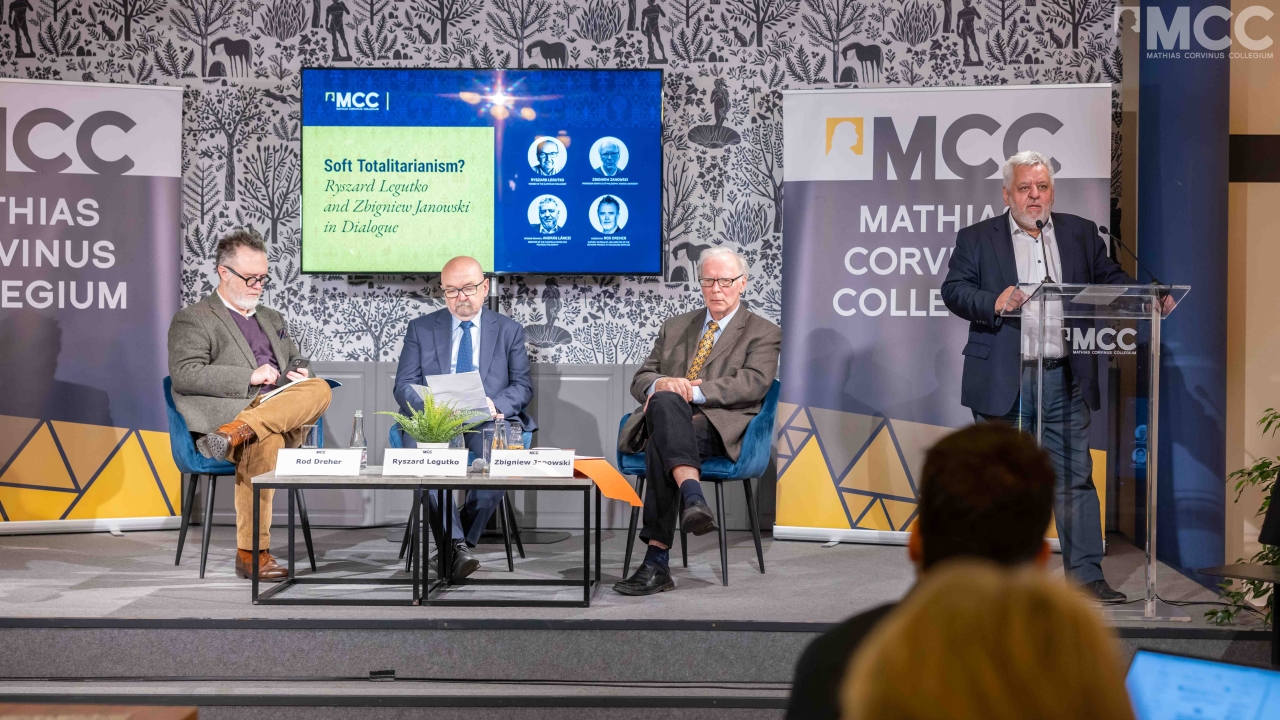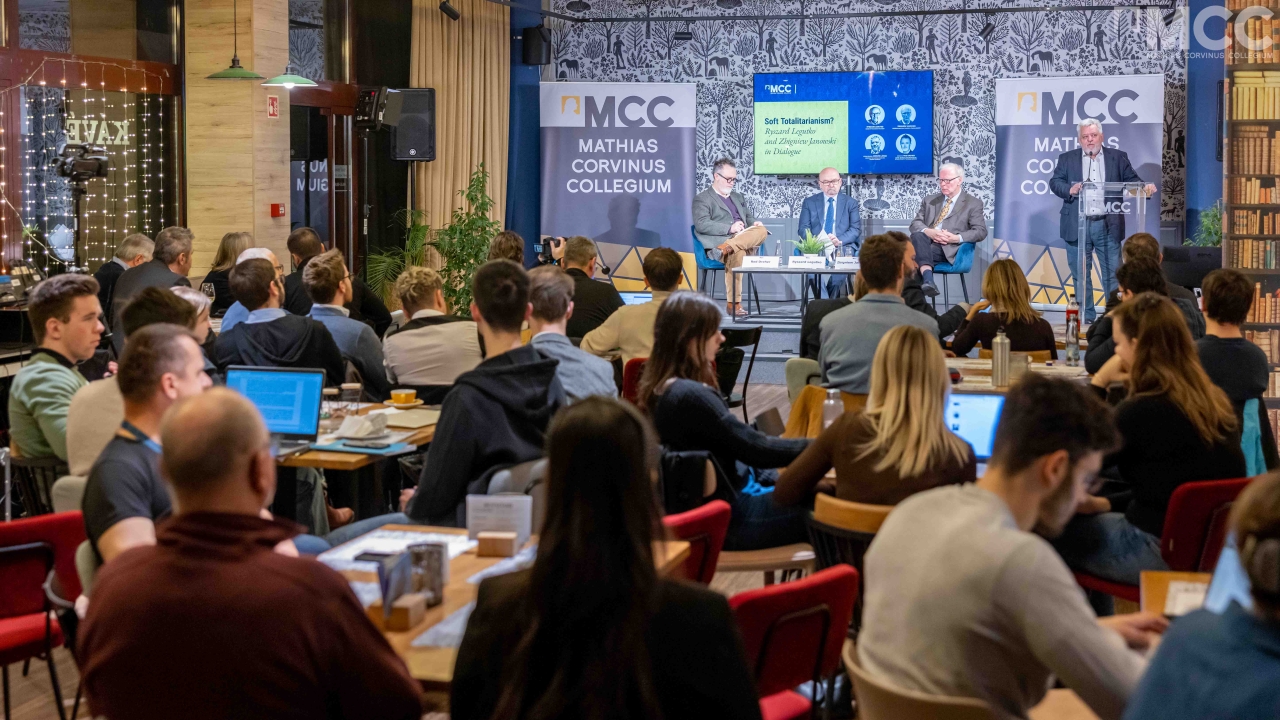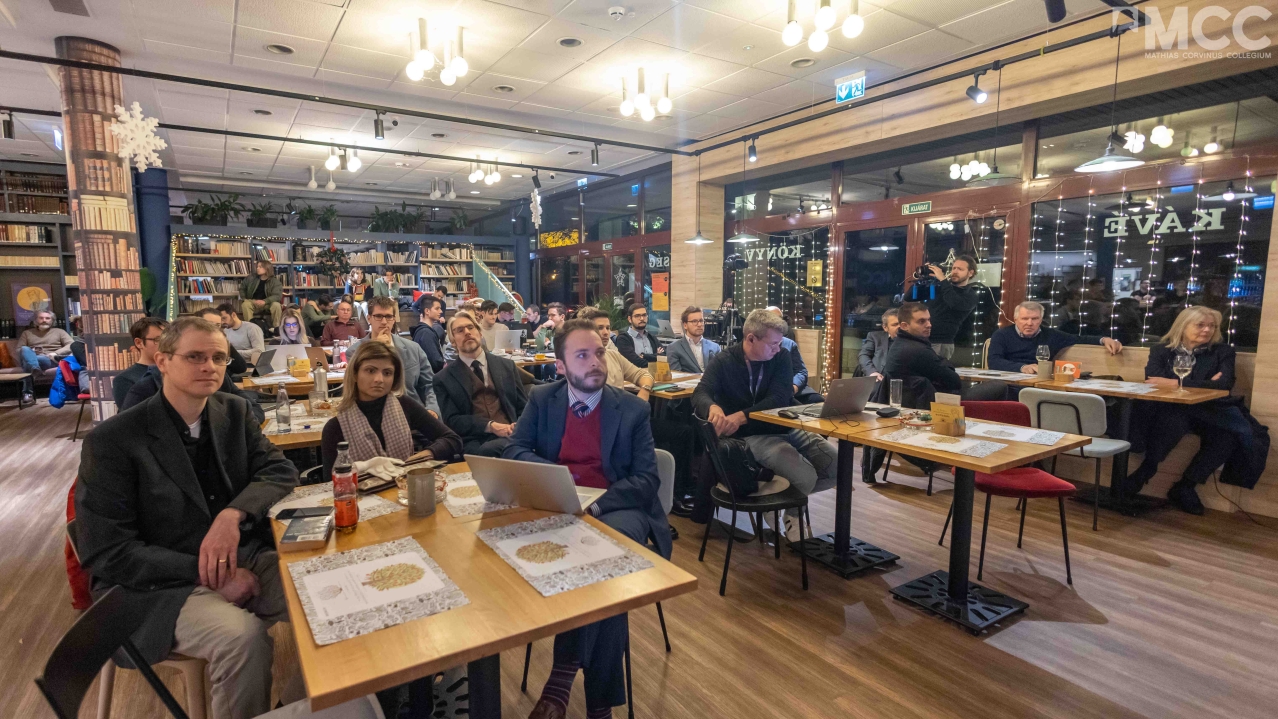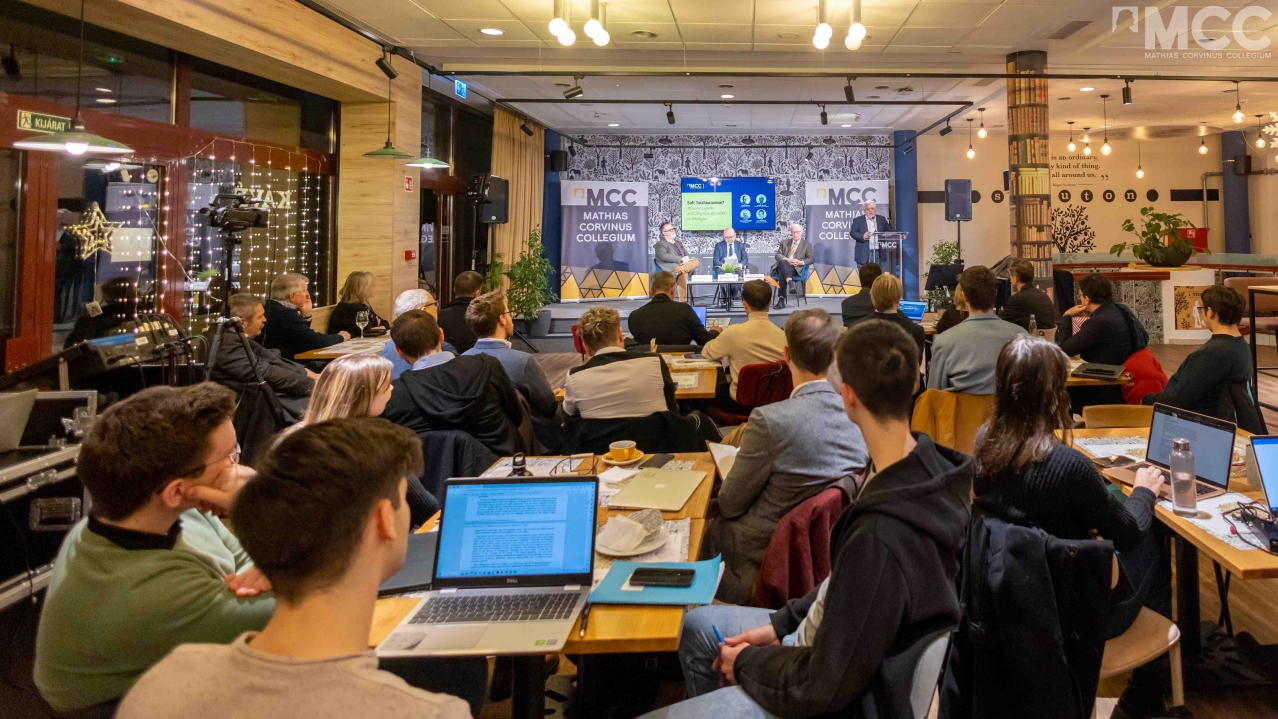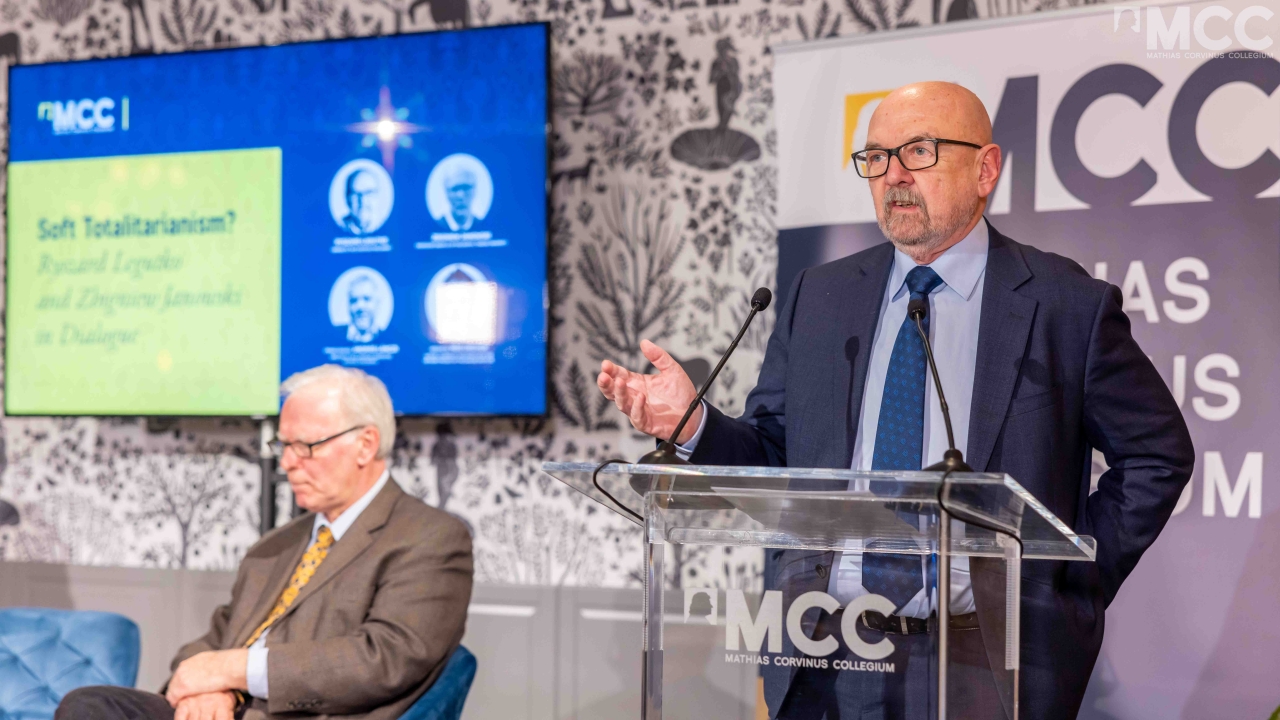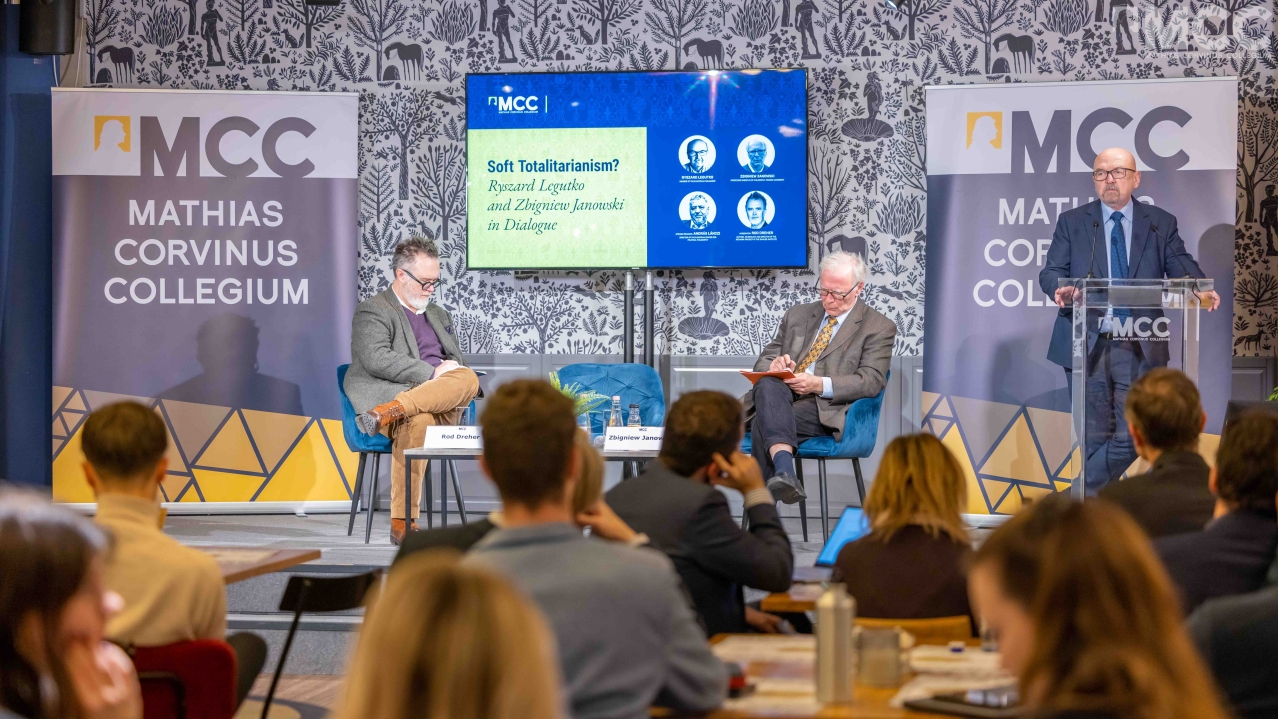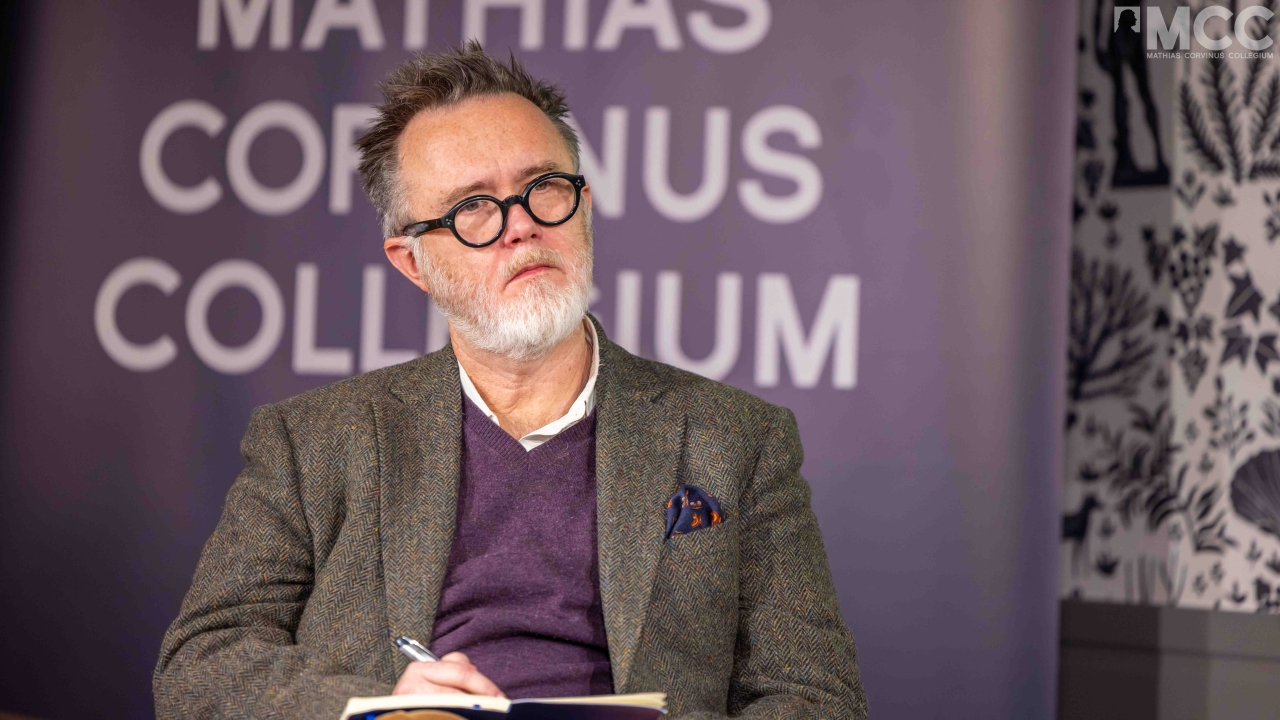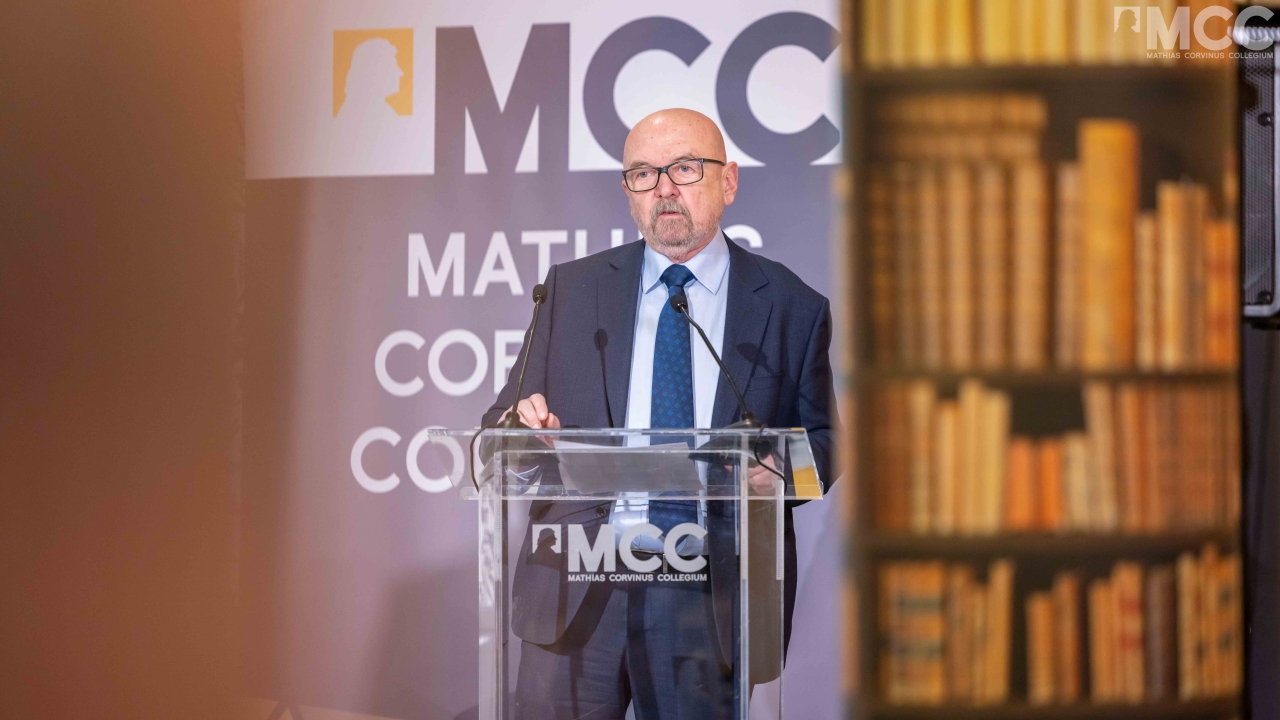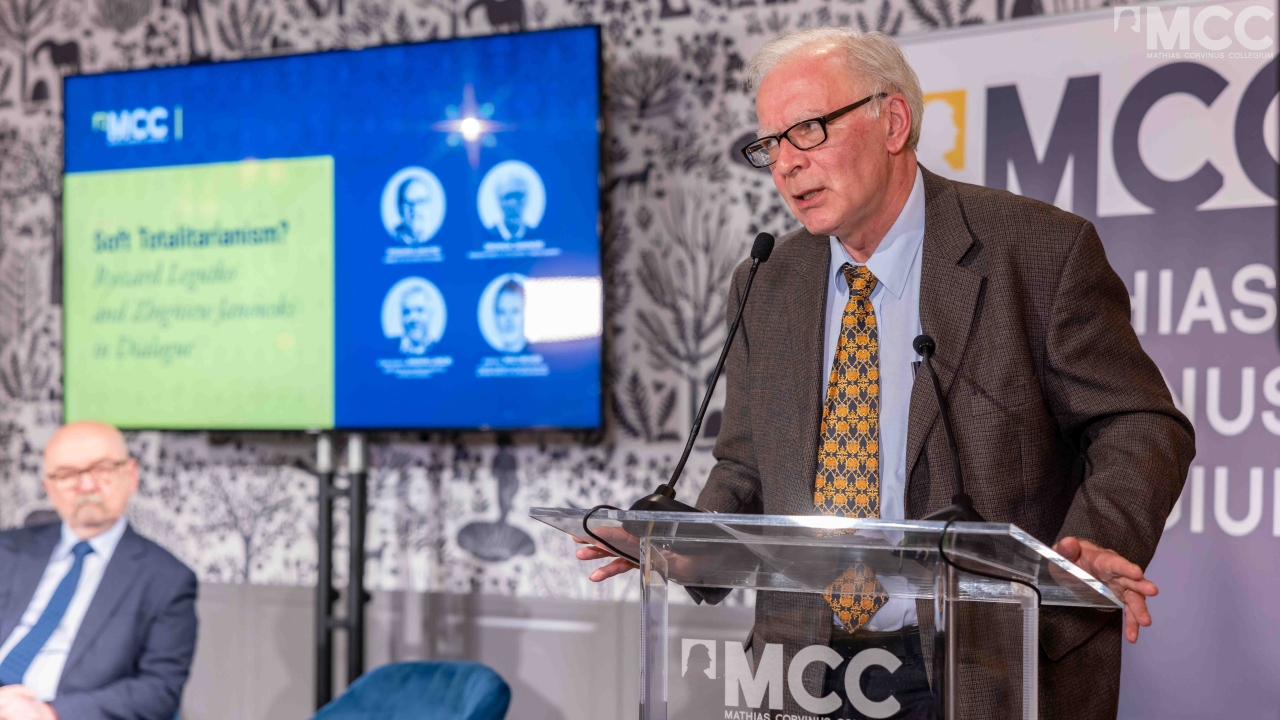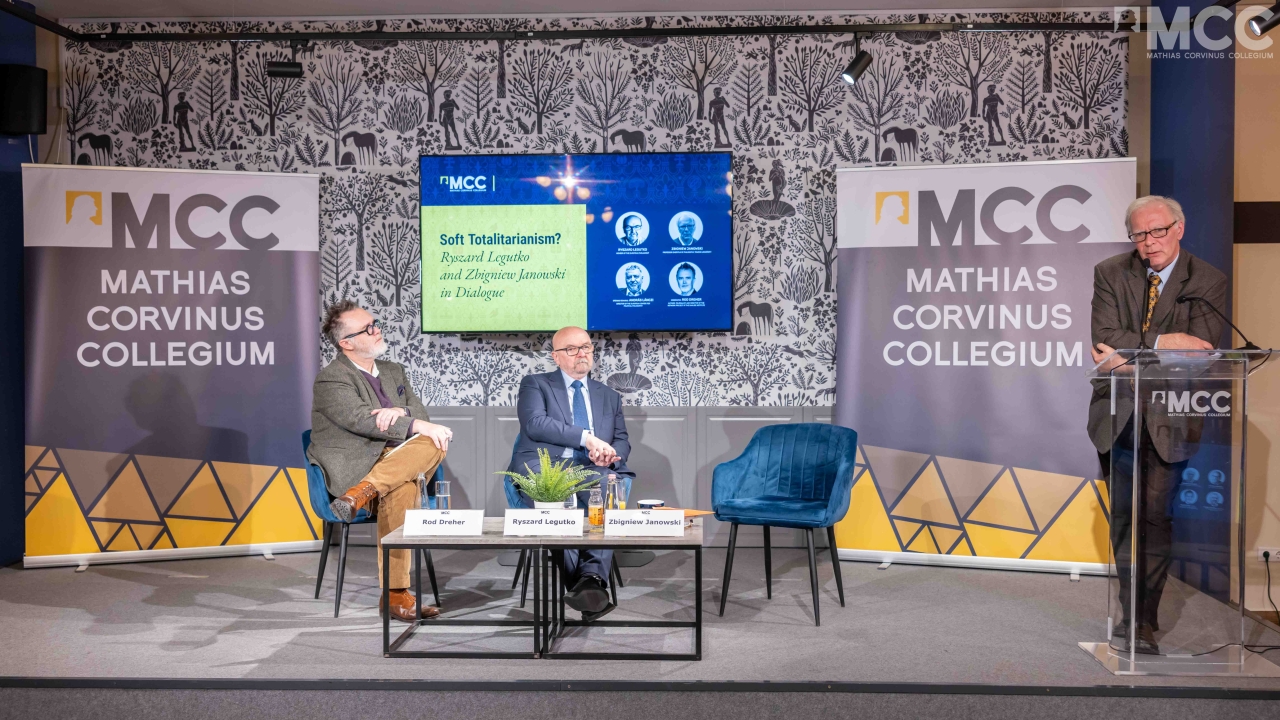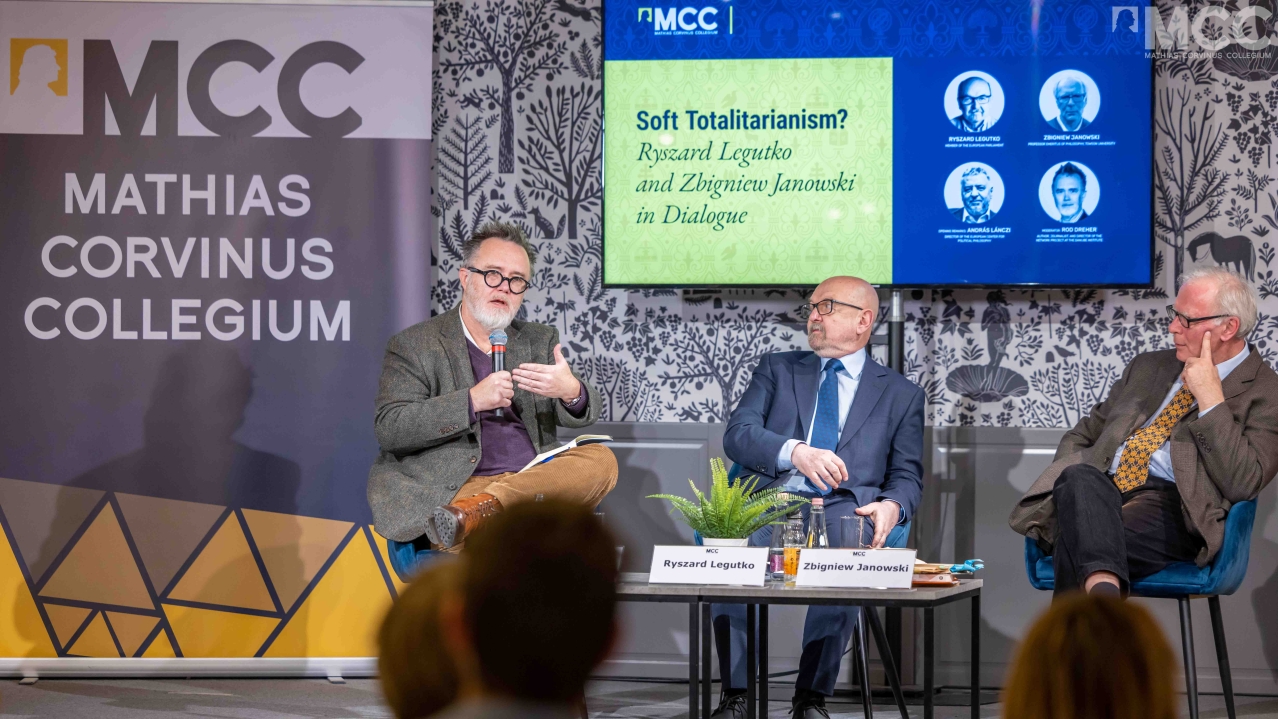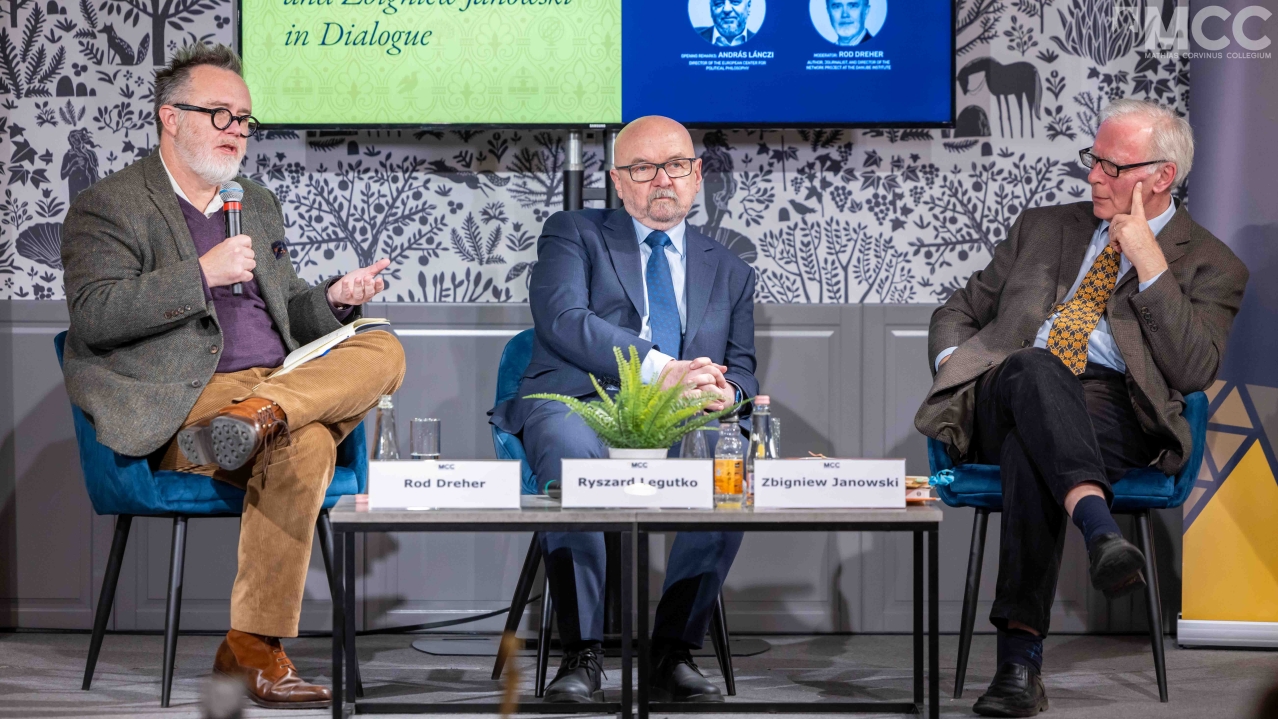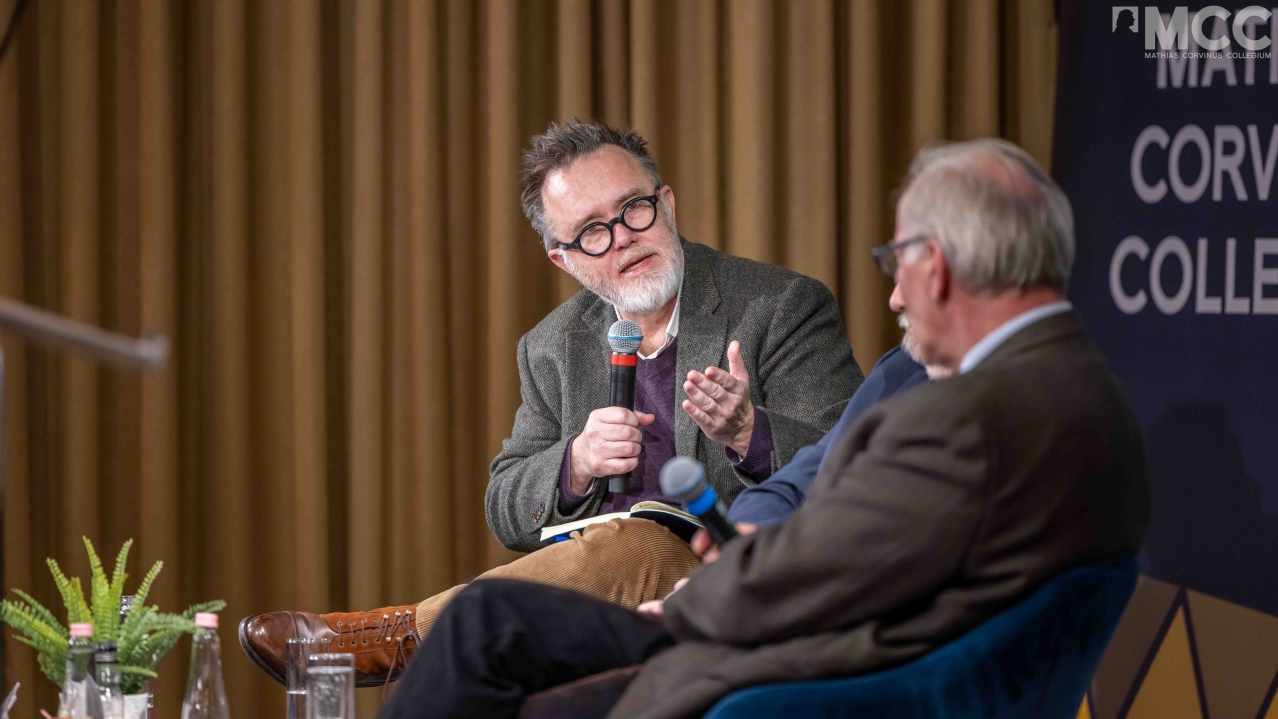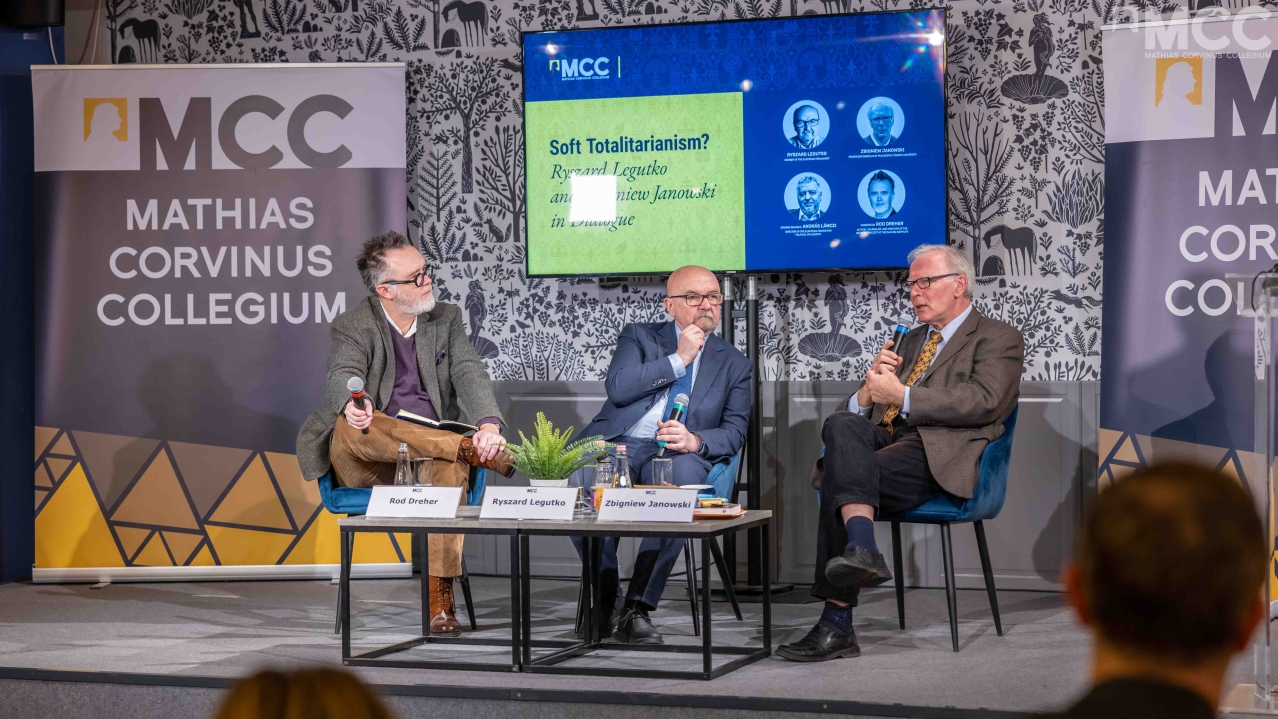Reading time: 2 minutes
"What would the 20th century have been like without totalitarianism?"—this philosophical question was raised at the Budapest headquarters of the Mathias Corvinus Collegium during an event organized by the European Center for Political Philosophy, which explored the concept of soft totalitarianism.
The event focused on so-called "soft totalitarianism," featuring guest speakers Ryszard Legutko and Zbigniew Janowski, authors of The Demon in Democracy: Totalitarian Temptations in Free Societies and Homo Americanus: The Rise of Totalitarian Democracy in America. The speakers argued that the expansion of liberalism and democracy does not lead to greater individual freedoms but instead creates a new social and political framework in which the citizens of modern Western societies can be profoundly enslaved. The discussion was moderated by Rod Dreher, editor of The European Conservative.
"It is shocking that we have to talk about the emergence of totalitarianism in America today," emphasized András Lánczi, director of the European Center for Political Philosophy, in his opening remarks. He added that the world is in a chaotic state, making it increasingly necessary to discuss such unusual phenomena.
Ryszard Legutko, a member of the European Parliament, spoke about "the great lie," stating that deception is at the core of totalitarianism. The connection between the two is clear: a totalitarian system seeks to control every aspect of people's lives.
Zbigniew Janowski, emeritus professor of philosophy at Towson University, explored the modern face of totalitarianism. In his view, it is not as brutal as Stalinism—meaning it does not involve the mass murder of millions of innocents—but to understand soft totalitarianism, one must ask: What would 20th-century history have been like without these regimes?
